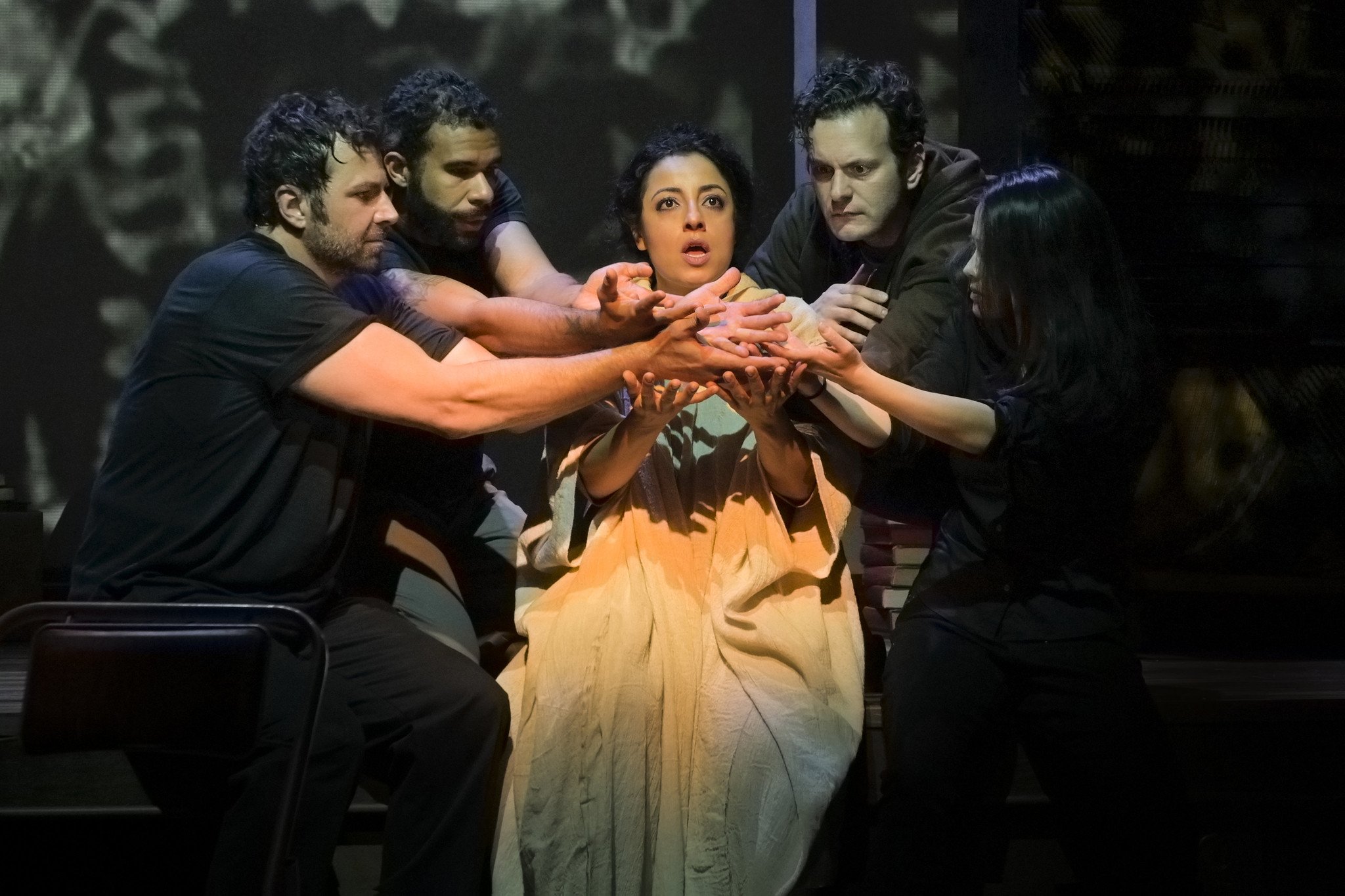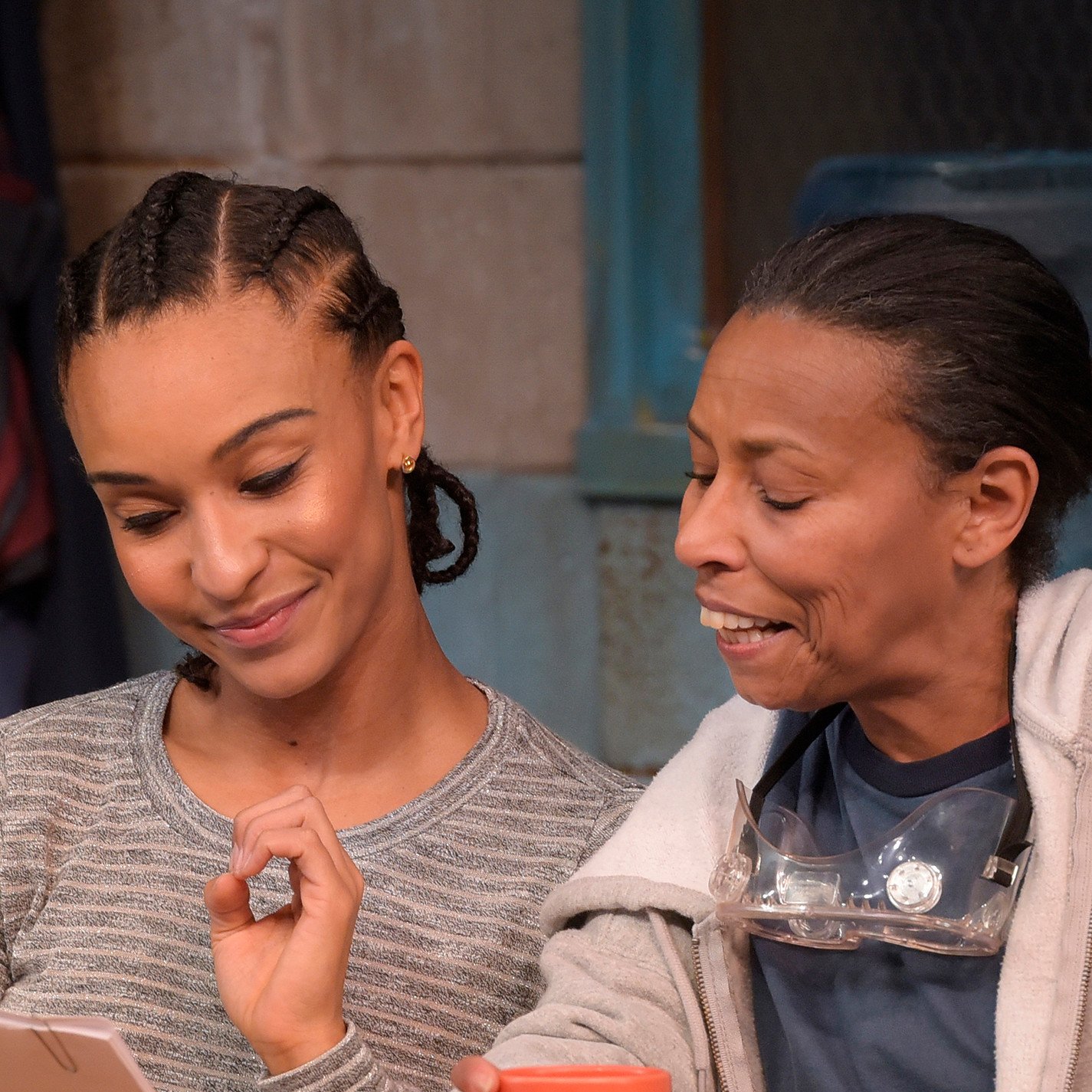
Berkeley Rep's Good Book is a revelation
Let's just admit it. The Bible is a clusterf**k. How in the world did such a literary hodgepodge, political football, myth collection become one of the most influential – if not the most influential book – ever created? That is the mammoth question asked by playwrights Lisa Peterson and Denis O'Hare ask in their fascinating play The Good Book now at Berkeley Repertory Theatre.

Riveting drama in Morisseau's Skeleton Crew
What an incredible talent to balance the dark weight of tragedy and the electrifying light of hope. That's what playwright Dominique Morisseau does in Skeleton Crew, a powerful play now at Marin Theatre Company (in a co-production with TheatreWorks Silicon Valley).

Love doth evade Marin's Shakespeare in Love
The Bay Area finally gets to see Shakespeare in Love on stage thanks to Marin Theatre Company, and while the cast boats some of the Bay Area's best actors – Stacy Ross, Lance Gardner, Megan Trout, Mark Anderson Phillips, L. Peter Callender – the production flails under the direction of Jasson Minadakis.
Sacred and profane: much to mull in Playhouse's Christians
While the San Francisco Playhouse audience was delving into Lucas Hnath's The Christians, a powerful, fraught examination of faith and organized religion, protestors were shutting down airports in demonstrations against the Trump administration's ban on immigrants from countries whose religions posed a perceived threat to our nation. In other words, the spiritual and emotional chaos inside and outside the theater were well matched.
Freedom, dreams clash in Aurora's Safe House
There are several ways to interpret the title of Keith Josef Adkins' Safe House now at Berkeley's Aurora Theatre Company. One way sees cobbler Addison Pedigrew, a free man of color in Kentucky, aiming for his version of the American dream: a thriving shoe making/repairing business run out of his home to support his Aunt Dorcas and his brother, Frank, so that they can be truly free to thrive and expand their families. The other way, according to Frank and Dorcas, is to provide shelter and assistance to fugitive slaves on the Underground Railroad. Both co-exist, but not easily in this 2014 drama, which takes much of its first act to really get going.
Something Fuddy going on here
The world of David Lindsay-Abaire is askew. From his earliest wacky comedies to his later, more serious award-winning work, Lindsay-Abaire’s “askewniverse” (to borrow a word from Kevin Smith’s oeuvre) is filled with people on the outside of perceived normal life, people who are, for whatever reason, struggling just to make themselves understood.
In Shrek the Musical it’s a green ogre who takes a while to figure out that even though he’s not a handsome prince, he’s actually a hero. In the Pulitzer Prize-winning Rabbit Hole it’s a mother numbed by grief slowly rebuilding a life and marriage after the death of her young son.
And in Fuddy Meers, Lindsay-Abaire’s first produced play (written while he was still in grad school at Juilliard), it’s an exceedingly cheerful woman named Claire who suffers from psychogenic amnesia.
Marin Theatre Company’s production of Fuddy Meers has the great advantage of having Mollie Stickney in the role of Claire. In the play’s nearly two hours, Claire’s blank slate becomes surprisingly full, and every revelation, recovered memory, moment of joy or pain registers on Stickney’s wonderfully expressive face.
TheatreWorks’ slam-dunkin’ Donuts
I guess I shouldn't be surprised that Leslie Martinson, director of Superior Donuts, should bring together such good actors. Martinson is also the company's casting director and has been with TheatreWorks for 26 years. Some directors say that casting is more than 50 percent of directing, and that's probably true for Martinson, though she's clearly a solid director (I loved her Theophilus North three years ago).
Howard Swain stars as donut shop owner Arthur Przybyszewski, an aging hippie who can't really be bothered by life, which he describes as "a derailment." He runs his shabby donut shop and doesn't much care that the new Starbucks across the street is killing his business. For him, the business has been dead for years. Swain conveys Arthur's detachment while making us care about him. Arthur has made some rough decisions in his life, and his troubled relationship with his now-dead father complicate his emotional life as well as his relationships with his own fractured family.